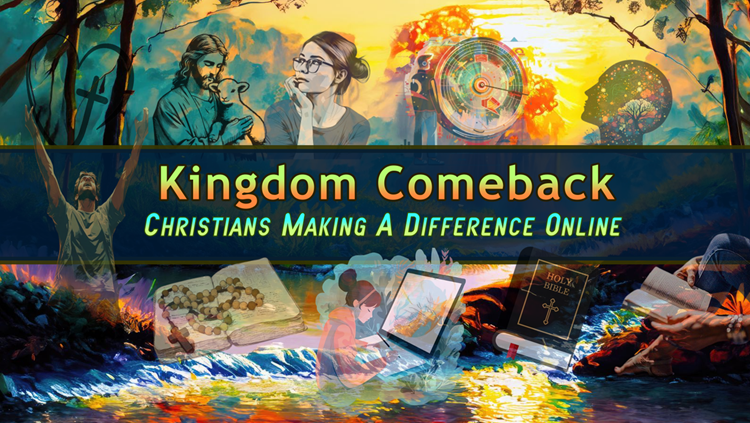
In today’s digital landscape, persuasion has taken on new dimensions. As businesses shift towards online platforms, understanding sales psychology becomes crucial for effectively influencing potential customers. The intersection of psychology and sales is not merely about tricking consumers into making purchases; it’s about understanding their motivations, behaviors, and emotions. This knowledge can drive strategies that close sales and build lasting customer relationships.
The Foundation of Sales Psychology
Sales psychology revolves around understanding the thought processes that govern consumer behavior. It encompasses the cognitive, emotional, and social factors that influence how people make purchasing decisions. By grasping these elements, marketers can create strategies that resonate more deeply with their target audience.
Key Psychological Concepts in Sales
- Cognitive Dissonance: This theory posits that when people hold two conflicting beliefs, they experience discomfort. In sales, if a customer feels uncertain about a purchase, addressing these doubts upfront can ease their decision-making process. Clear communication and reassurance can mitigate this discomfort.

- Social Proof: People often look to others for guidance, especially in uncertain situations. Testimonials, reviews, and user-generated content are potent forms of social proof. By showcasing how others have benefited from a product or service, businesses can enhance credibility and encourage potential customers to follow suit.
- Scarcity and Urgency: The fear of missing out (FOMO) can be a strong motivator. Consumers are often compelled to act quickly when products are presented as scarce or time-sensitive. Limited-time offers, or exclusive deals can trigger an emotional response that drives immediate purchasing behavior.
- Reciprocity: This principle suggests that people feel obligated to return favors. Offering free resources, trials, or helpful content can foster a sense of goodwill. When consumers perceive that a brand has invested in them, they are more likely to reciprocate by purchasing.
- Anchoring: This cognitive bias occurs when people rely heavily on the first information they encounter. In sales, presenting a higher-priced item can make subsequent items appear more reasonable, influencing the buyer’s perception of value.
The Online Environment: Challenges and Opportunities
While the fundamentals of sales psychology remain constant, the online environment introduces unique challenges. The vast amount of information often overwhelms consumers, leading to decision paralysis. Understanding psychological triggers is essential to guiding potential customers through the buying journey.
The Role of Content Marketing
Content marketing is a powerful tool for leveraging sales psychology. Businesses can establish trust and authority by providing valuable information that addresses consumer pain points. This trust is critical in a digital world where skepticism can be high.
Creating Emotional Connections: Storytelling is a potent method for engaging customers emotionally. By sharing relatable narratives, brands can connect with their audience’s values and aspirations, making their products more appealing.

Educational Content: Informative articles, videos, and infographics can help demystify complex products or services. Businesses can alleviate doubts and foster confidence in their offerings by positioning themselves as experts.
Personalization: Tailoring the Experience
Personalization is a cornerstone of effective online sales strategies. With advancements in data analytics, businesses can now understand individual customer preferences and behaviors. Tailoring content and recommendations based on user data can significantly enhance the buying experience.

- Segmentation: Dividing your audience into distinct segments allows for targeted messaging that resonates with each group. Understanding the unique motivations of each segment can lead to more effective campaigns.
- Dynamic Content: Implementing dynamic content that changes based on user behavior can create a more engaging experience. For instance, displaying products based on previous browsing history can make the shopping experience feel more intuitive.
- Follow-Up Strategies: Automated follow-up emails or retargeting ads can remind consumers of products they showed interest in. By keeping the conversation going, brands can stay top-of-mind and encourage conversions.
Building Trust and Credibility Online
Building trust is paramount in an era when consumers are increasingly wary of online scams. Understanding the psychological aspects of trust can help businesses develop strategies that reinforce their credibility.
Transparency and Authenticity
Transparency involves being honest about products, pricing, and policies. Clear communication helps alleviate concerns, and fosters trust. Authenticity is equally vital; consumers are likelier to engage with brands that genuinely commit to their values.
- User-Generated Content: Encouraging customers to share their experiences can enhance credibility. Real-life testimonials and reviews act as powerful endorsements that resonate with potential buyers.
- Engagement on Social Media: Actively engaging with customers on social media platforms can foster a sense of community. Responding to inquiries and feedback shows that a brand values its customers, further building trust.

The Role of Visuals
Visual content plays a crucial role in online sales. Research shows that people process images faster than text, making visuals an effective way to convey messages. High-quality images, infographics, and videos can capture attention and communicate value more effectively than words alone.
The Sales Funnel and Psychological Triggers
Understanding the sales funnel is essential for effectively applying sales psychology. The funnel represents a consumer’s journey from awareness to purchase and beyond. Each stage presents unique opportunities to leverage psychological principles.
- Awareness Stage: At this stage, the goal is to attract potential customers. Engaging content that addresses common pain points and provides solutions can draw attention and spark interest.
- Consideration Stage: Once consumers are aware of a product, they enter the consideration stage. This is where social proof and detailed information come into play. Case studies, comparisons, and testimonials can help guide their decision-making.
- Decision Stage: As customers approach the decision stage, creating urgency and emphasizing benefits can encourage action. Special offers, discounts, or limited-time promotions can effectively nudge consumers toward completing their purchases.

- Post-Purchase Stage: After a purchase, the relationship doesn’t end. Implementing follow-up strategies, such as personalized thank-you emails or loyalty programs, can enhance customer satisfaction and encourage repeat business.
Ethical Considerations in Sales Psychology
While understanding sales psychology can be a powerful tool for influence, ethical considerations must guide its application. Manipulating consumers through deceptive practices undermines trust and can damage brand reputation in the long run.
Fostering Genuine Relationships
The most successful businesses prioritize building genuine relationships with their customers. By understanding their needs and motivations, brands can create solutions that truly add value. This approach not only drives sales but also cultivates customer loyalty.
- Empathy: Practicing empathy involves putting oneself in the customer’s shoes. Understanding their emotions and challenges can lead to more meaningful interactions and better product offerings.
- Feedback Loops: Actively seeking and responding to customer feedback demonstrates that a brand values its customers’ opinions. This fosters loyalty and informs future product development and marketing strategies.

Conclusion
Understanding sales psychology is not just advantageous; it’s essential in the dynamic realm of online sales. By tapping into the cognitive and emotional triggers that drive consumer behavior, businesses can create strategies that resonate with their audience, build trust, and ultimately influence purchasing decisions.
As the digital landscape continues to evolve, the ability to connect with customers on a psychological level will be a defining factor in the success of online businesses. Embracing these principles leads to increased sales and fosters lasting relationships that benefit brands and consumers.
CLAIM YOUR FREE BOOKS & COURSES!


